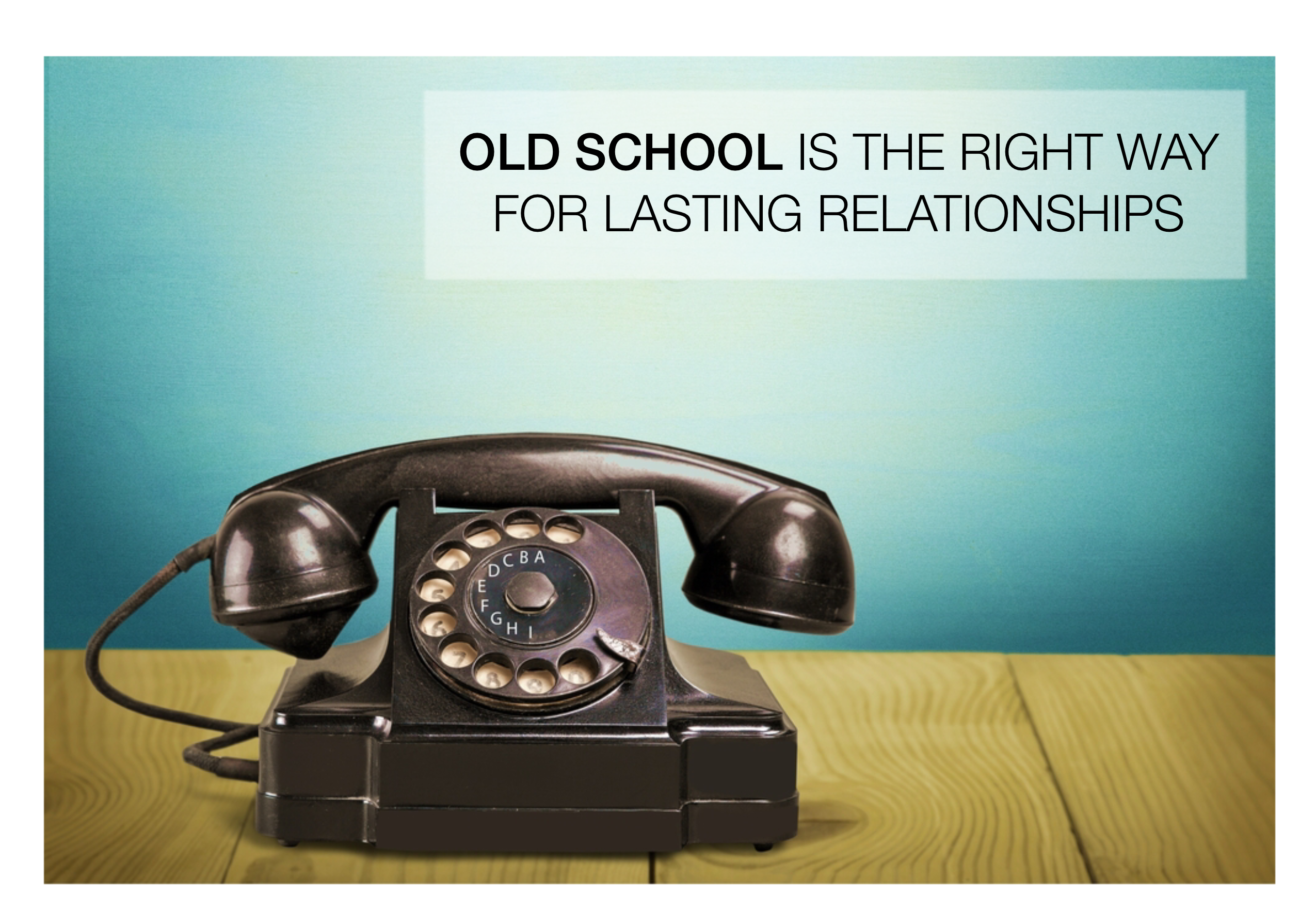Someone did something nice for you, so you drop them an email. You’re hosting an event, so you send out a bunch of evites. You need to discuss something important with a family member or a business partner, so you put your thoughts in an email or a text – and expect them to respond in kind.
This “new school” of personal relations can seem kind of cold, don’t you think?
As society drifts further into the realm of high-tech, the old-school, high-touch means of connecting is once again gaining favour over new age conventions. Where digital might suffice, a handwritten card, invitation delivered via the postal service or just picking up the phone to discuss something important, have never been more important.
Many of us have simply lost touch with the social graces.
Even researchers and the media seem to have embraced the escape from common courtesy. A study from Harvard recently found that people who are always late tend to be happier and live longer. The “chronically late have lower blood pressure and a lower risk of developing heart disease.”
I call hogwash. If I were chronically late, I’d expect a tongue lashing by the other party; if that person were a boss or client, I’d expect to be put on notice. There’s a saying in certain circles: “If you’re early, you’re on time, and if you’re on time, you’re late.” I often will find myself waiting for a half hour before a meeting because I left early expecting horrific traffic, only to find it wasn’t as bad as I’d expected. Truth is, I can’t stand being late and it gives the chance to make a few calls and have an espresso.
Old school also has its place in moments of high praise. Studies have found that people deserving of a reward for a job well done, often appreciate public praise over financial reward. We’re not talking about some four-figure bonus. But if a subordinate or co-worker goes above and beyond, praising them publicly, whether in a meeting, on a company chat or in a newsletter, will be appreciated.
There’s another reason old school succeeds in the new age. Things can go wrong. Your email or evite may go to spam (and how often do you check your spam folder anyway – daily, weekly, ever?).
In any era, picking up the phone, sending a note or card, just reaching out with a hand written note, does more than build bridges. It bolsters your brand. We wrote recently about the idea of “brand you.” If you want to be remembered, nothing is more powerful than the personal touch.
Besides, all this reliance on technology has left us terribly vulnerable. Consider this: If you lost your phone, would you remember your family’s phone numbers, your email account passwords, or even the time of tomorrow’s meeting? We treat our devices like simple and almost disposable gadgets – not the power tools they’ve become in the modern world.
We use our kids’ birth dates or names as passwords – and leave them scribbled on post-its on our desk or in plain view.
Tech professionals have a saying: There are two types of tech users – those who have been hacked, and those who will be. Create challenging passwords, even a convention or pattern only you can remember – like the first letters of a unique phrase that changes with the website or app you’re applying it to. Then commit it to memory. If you must write it down, make sure you lock it somewhere safe.
What does tech have to do with new age versus old school? It’s really about using old-school common sense in all we do. Even your investment advisor uses old school measures. You want to make a trade? Don’t try to email them or leave a voicemail. They want to hear your voice.
The current evolutionary path mankind is walking, leaves us at risk of modern challenges. Leaving behind high-tech for the embrace of high-touch, can be highly rewarding – for your brand, your security and your relationships.
Let’s rebuild those bridges that technology wants to replace. Try this: Buy a stack of blank cards and stamps. And get in the habit of sending thank you, greetings, kudos or “just thinking of you” notes. You might even get a call, in return.
Embracing old school practices in the digital age can be like letting go of a shiny new toy that demands your attention. But you can do it. If you need some help, let’s talk.

Samy, I am the same way. Do you think culture plays a role? My Portuguese wife is never on time.
Phil, culture can play a role in many things, but in the case of hand written notes, picking up the phone and doing things old school, this is more a way of living life than cultural.